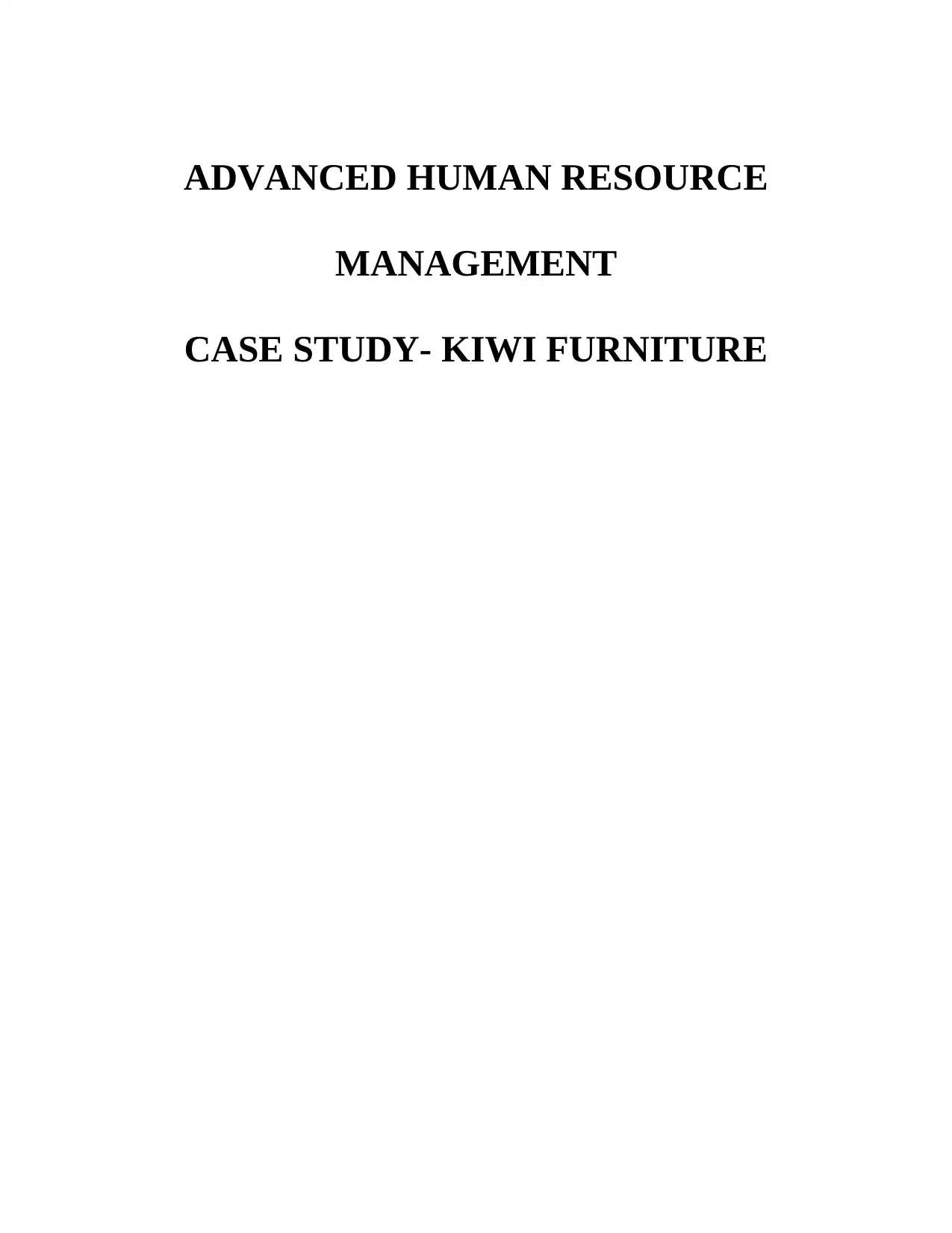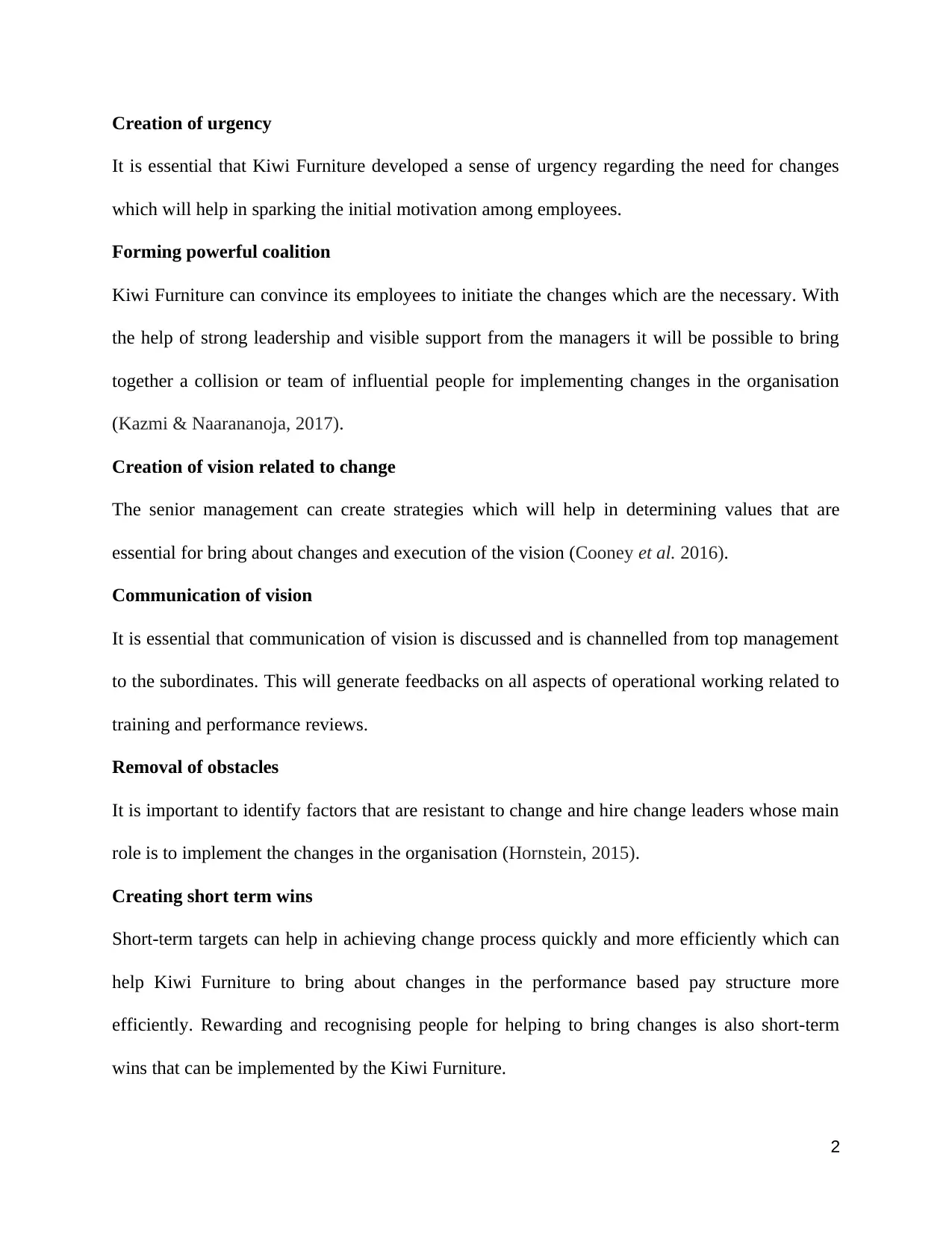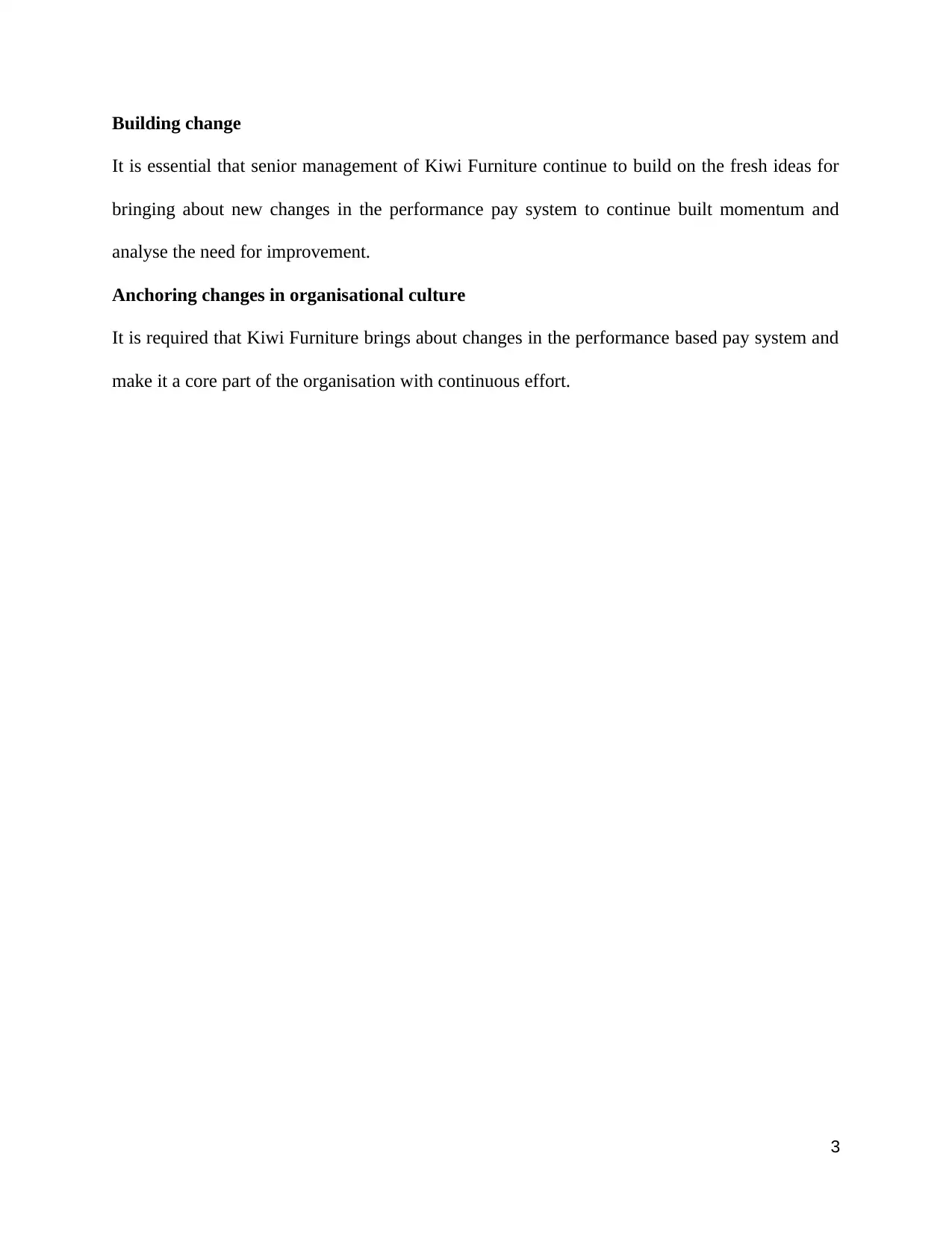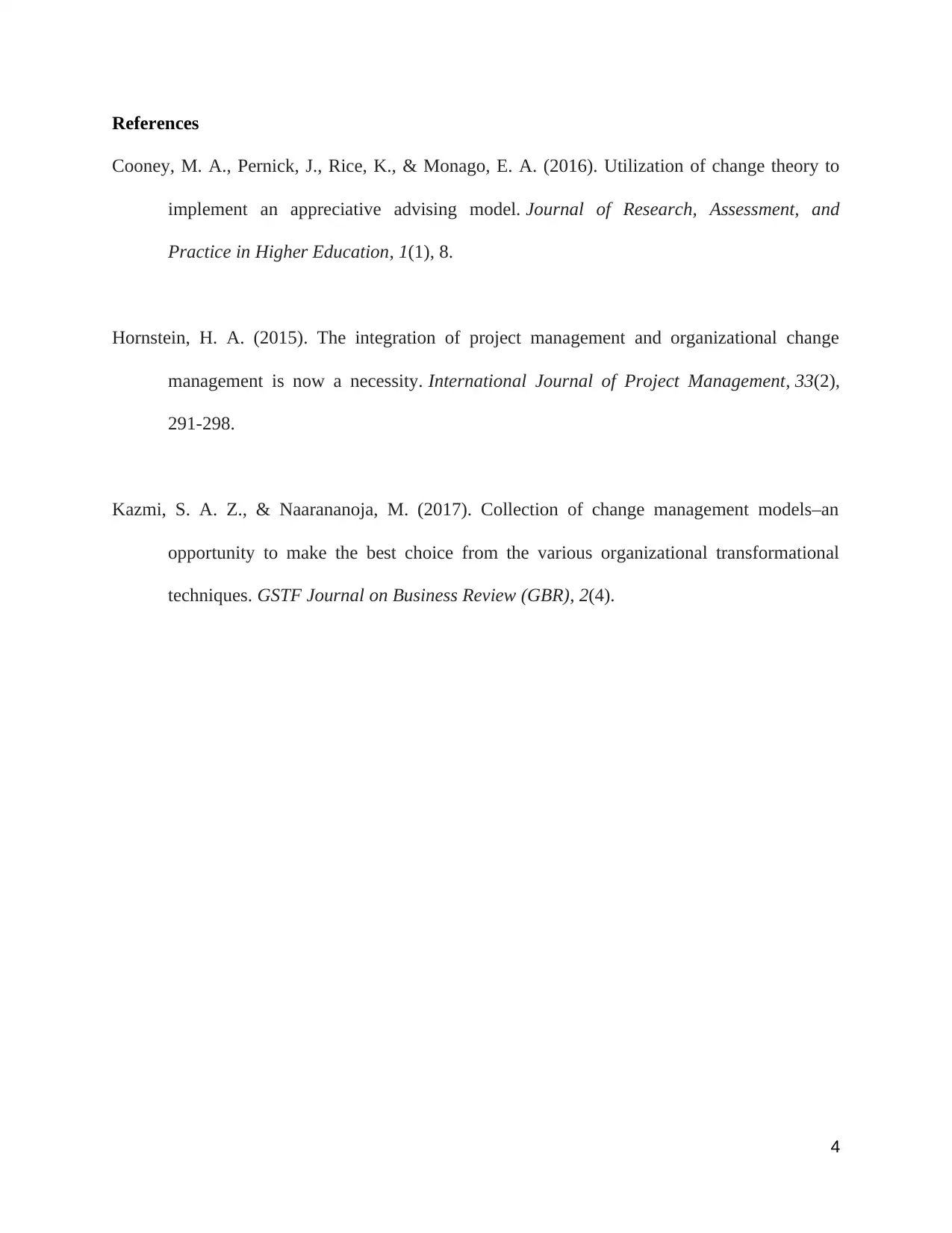Advanced HRM Case Study: Kiwi Furniture - Change Management in France
VerifiedAdded on 2022/12/29
|4
|474
|63
Case Study
AI Summary
This case study examines Kiwi Furniture's strategic approach to implementing a global performance-based pay system in France, focusing on change management principles. The analysis utilizes John Kotter's 8-step model to critically evaluate the philosophies required for successful implementation without negatively impacting organizational performance. The solution addresses the creation of urgency, forming a powerful coalition, establishing a clear vision, effective communication, removal of obstacles, achieving short-term wins, building on changes, and anchoring the changes within the organizational culture. The study emphasizes the importance of leadership, employee motivation, and continuous improvement, supported by academic research and real-world examples, and provides insights into the critical elements for organizational transformation in the context of human resource management. The analysis includes citations from peer-reviewed journals and books to support the arguments and findings.
1 out of 4











![[object Object]](/_next/static/media/star-bottom.7253800d.svg)